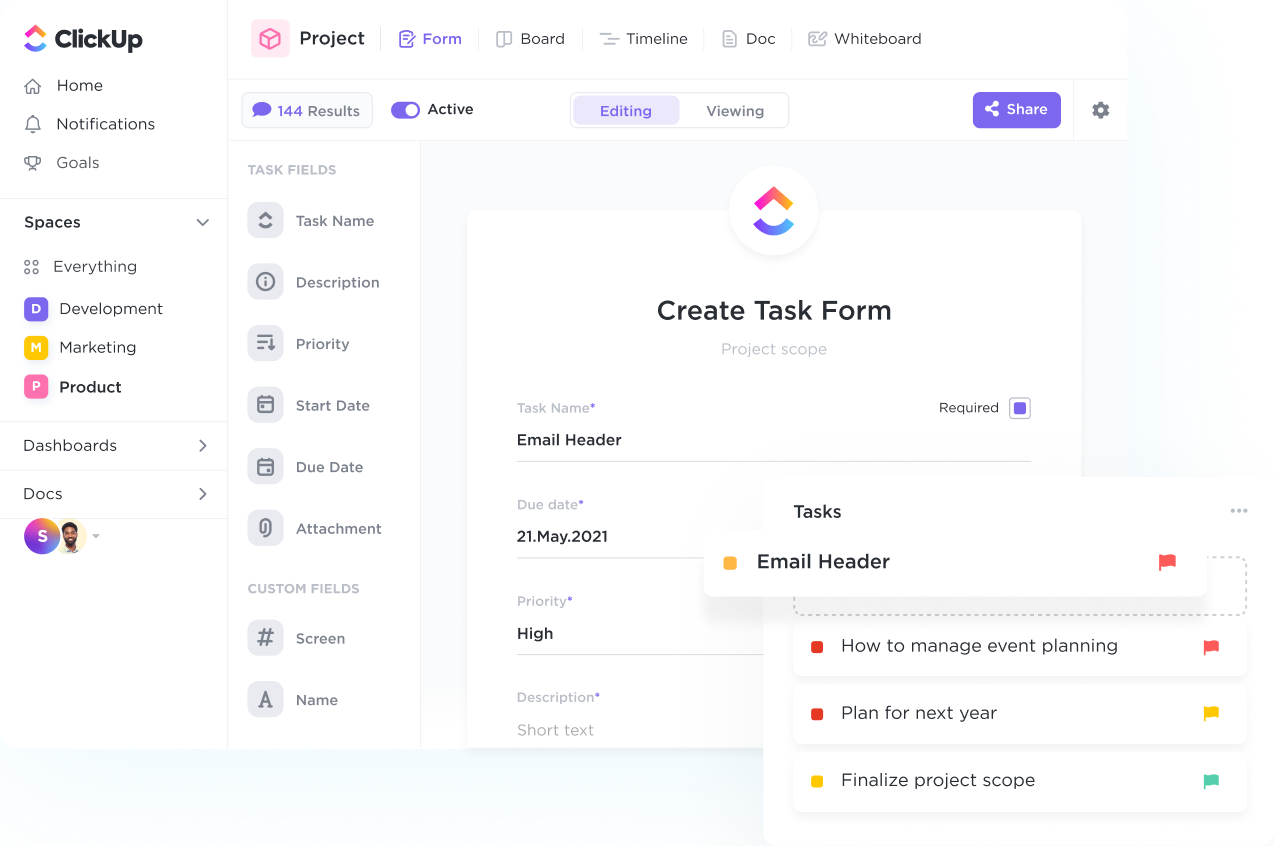Forms
Onboard customers and collect info in a snap.
Streamline your intake process, organize response data, and automatically create tasks with custom branded Forms powered by conditional logic.

Gantt Charts
Optimize your workflow with ClickUp's customizable CRM system designed specifically for Network Administrators. Streamline your tasks, track client interactions, and boost productivity all in one place. Say goodbye to scattered data and hello to a centralized solution with ClickUp. Sign up today to revolutionize the way you manage customer relationships.
Free forever. No credit card.
Forms
Streamline your intake process, organize response data, and automatically create tasks with custom branded Forms powered by conditional logic.

Relationships
Create your ideal system to store and analyze contacts, customers, and deals. Add links between tasks, documents, and more to easily track all your related work.

A CRM for network administrators can centralize all network information, including device configurations, network topology, IP addresses, and maintenance logs. This centralization ensures that all critical network data is easily accessible and organized in one platform.
CRMs can automate network monitoring tasks by setting up alerts for network devices, bandwidth usage, or security breaches. Automated alerts notify administrators of any issues in real-time, allowing for proactive troubleshooting and minimizing downtime.
CRM systems can help network administrators manage and track support tickets efficiently. By centralizing ticket creation, assignment, status updates, and resolution details, the CRM ensures that all issues are addressed promptly and no request falls through the cracks.
Asset management is crucial for network administrators to track hardware and software inventory, warranties, and license renewals. A CRM can streamline asset management by providing a unified view of all network assets, their status, and maintenance schedules.
CRMs can serve as a repository for network documentation, best practices, troubleshooting guides, and configurations. This facilitates knowledge sharing among team members, ensures consistency in network management practices, and accelerates problem-solving for complex issues.
CRM software for network administrators provides tools for managing user accounts, permissions, and access levels effectively, ensuring network security, monitoring user activities, and optimizing network performance.
CRM software helps network administrators by centralizing network data, providing visibility into network performance and issues, enabling proactive monitoring, efficient ticket management, and streamlined communication with team members and clients, ultimately enhancing troubleshooting speed and effectiveness.
Yes, some CRM software can integrate seamlessly with network monitoring tools to provide network administrators with a comprehensive solution that combines customer relationship management with network monitoring capabilities.